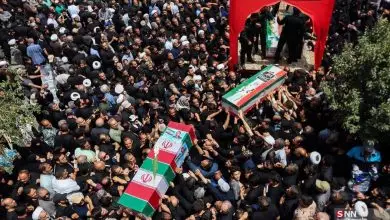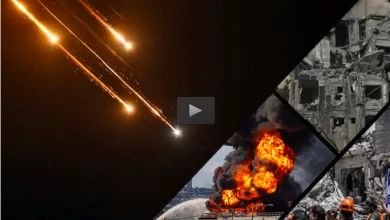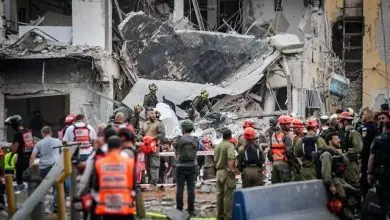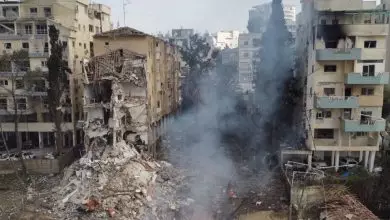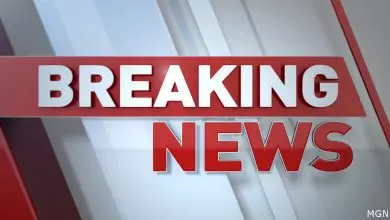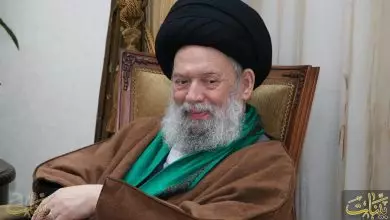Beirut bombing sign of failure of Syria enemies

Press TV has talked with Jamal Wakim, with the Lebanese International University in Beirut, regarding the bomb blast that rocked the Shia neighborhood of Zahiyeh in the south of the Lebanese capital.
What follows is an approximate transcription of the interview.
Press TV: Obviously, a horrific scene that has occurred there in southern Beirut. So far, over a hundred injured and we have up to maybe 16 dead. The spillover from Syria is the most probable cause here, but what is your initial reaction as to what has happened? And, of course, what are the future prospects, look, in particular let’s start with Lebanon in this scenario which could be a Syria spillover.
Wakim: I believe that this explosion in the southern suburb of Beirut which is the bastion of Hezbollah mainly and the support of Hezbollah comes as a result of the regional instability, mainly the incidents of Syria; the accusations against Hezbollah that … and the vindictive speeches by some clerics and some political parties against Hezbollah because of this.
So, all this might lead us to conclude or just to have an idea about who would be the instigator of this incident and explosion especially that it comes on the next day of the 7th anniversary of the victory achieved by Hezbollah over Israel.
So, we need to add that there is also a political deadlock in Lebanon and I believe that the more the things get stabilized for the Syrian regime, the more the opponents of Assad, the opponents of Iran and the opponents of Hezbollah will lead or will raise the attention inside Lebanon.
I believe that we will see more and more of these incidents in the next few weeks and months and Lebanon will live in a more tense situation on the security level.
Press TV: I wanted the country that has been attributed to creating this instability especially in Iraq and perhaps in this case in Lebanon is Saudi Arabia. This group that our correspondent told us that has claimed the responsibility is al-Aiysha is perhaps an al-Qaeda group. It still needs to be confirmed.
What is Saudi Arabia’s ultimate goal here? Is it a signal that it is sending to Hezbollah in terms of backing off from Syria? Or are we looking at them trying to destabilize Lebanon as well as Iraq, as well as what they are doing in Syria?
Wakim: Definitely and we should not see this separate from what is going on in Egypt, Just destabilizing the whole region in order to … of being ready for a geopolitical upheaval to redraw the whole geopolitical map.
So, what happened today in Beirut cannot be separated from what happened yesterday in Egypt where the Muslim Brotherhood instigated violence as a reaction to the action or to the ousting of Morsi from power. It cannot be separated from the situation in Syria and it cannot be separated from the explosions and bombings that are taking place in Iraq.
I believe that al-Qaeda is not working alone in this. Maybe some Saudi high ranking officials mainly [Bandar] bin Sultan might be … in this because he has been active lately in supporting the directions in Syria and he was the one supporting or instigating violence in Iraq and its … in his favor to cause instability in Egypt and Lebanon is within this conflict. So, we should see this in this context.
Press TV: Former US Ambassador in Baghdad Christopher Hill is saying that Saudi Arabia has funded al-Qaeda. Doesn’t that by default make the US also responsible in a sense where its biggest ally in the region is Saudi Arabia aside from Israel?
I mean obviously the US is aware of what al-Qaeda is doing, its movements, its funding; they must have plenty of intelligence on the ground especially in Iraq. So what role do you see the US is playing in this whole scenario when it comes to cooperation between the US, Israel and Saudi Arabia?
Wakim: Saudi Arabia is the most important ally in the region to the United States alongside Israel and lately it was Saudi Arabia that was most active in implementing or it is trying to implement the American agenda in the region.
First, we need to remember that al-Qaeda was financed, trained and supported for so long by Saudi Arabia and by the US until [last month] and it has been used after the death of Bin Laden. Some operatives of al-Qaeda were rehabilitated as to work in the line of the Saudi agenda which is not far from the American agenda.
We cannot see much initiative and freedom of action from Saudi Arabia without taking into consideration the fact that Saudi Arabia cannot act without an American green light.
So, instigating problems and instability in Lebanon, Syria and Iraq matches to the geostrategic interests of two major actors in the region now which are Syria and Iran and at the same time, it has to set the context for redrawing the geopolitical map of the region along American line.
We need to understand that the Americans’ plan in the Middle East has received several setbacks. First, the Syrian regime was toppled in two years of … and fighting and financing terrorists to go all the way there to fight against the Syrian regime on one hand.
The American agenda received also a severe blow by the ousting of the Muslim Brothers from power in Egypt. Their ally in Turkey, Erdogan is voicing his concern especially after the fall of its ally in Egypt because the plan was to create a triangle of Sunni capitals ‘Ankara, Riyadh and Cairo’ to stand against what they or the Americans consider as Iranian Shia expansionism.
This is behind the instigation of the Sunni-Shia tension throughout the region and this is how we can understand the explosions that are taking place in Lebanon and of course the incidents in Syria and the fighting in Syria and the explosions in Iraq.
So, we need to remember that Hezbollah fought with the Syrian army against the rebels or the terrorists in al-Qusayr. In addition, the Iraqi government of Nouri al-Maliki refused the American fascist to join the Saudis and other pro-Americans in boycotting the Syrian regime and in supporting the terrorists.
So, once we get this bigger picture, we can understand what really happened; what is the meaning of this explosion in the southern suburb of Beirut and why it happened in predominantly Shia neighborhood supporting Hezbollah.
Press TV: If the situation in Syria is a barometer to go by in terms of what is happening, the spillover that is, we are still looking at what appears to be unless the US is just acting this role out and that is the Geneva-2 of which they came out again recently, both the United States and Russia, saying the urgency behind this to happen.
Do you see that as being perhaps some type of problem that is going to be solved and that of course on the war on Syria? Or is this situation in Syria not going to be resolved through Geneva-2 if it is going to happen and therefore just the extension of violence to continue there in Syria?
Wakim: Things are not tried yet for holding this Geneva-2 Conference because the Americans are still trying to make up for their losses. The situation on the ground is not to their favor because the Syrian army was able to achieve major success against its opponents.
In Iraq, the situation in spite of everything is still under control of the government of Nouri al-Maliki and in Lebanon, Hezbollah and its allies are still strong enough to obstruct any political development that could run against their interests.
So, the Americans are trying, through supporting these bombings and explosions, to alter the situation in order to have a better negotiating position against the Russians before holding the Geneva-2 Conference.

